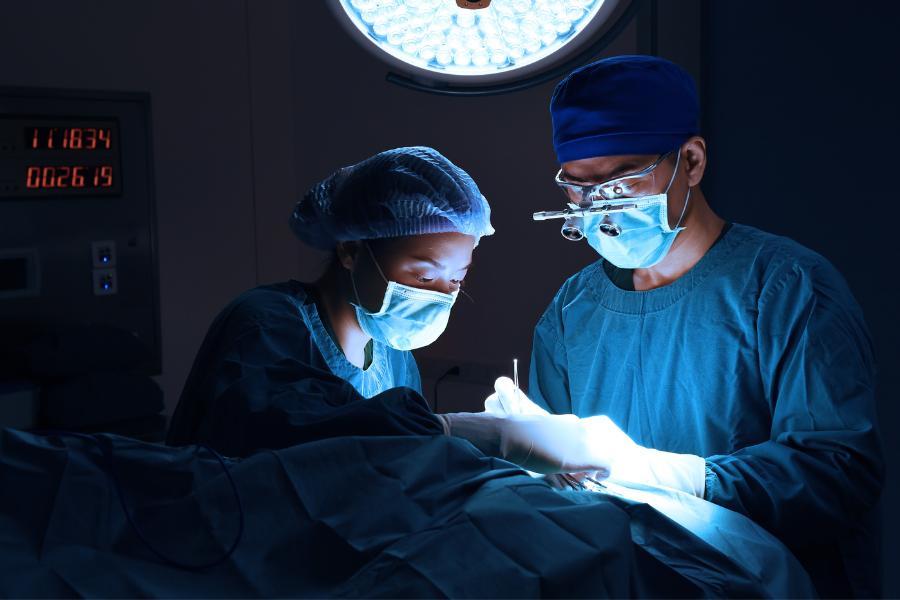Appendix Surgery
 Minimally-invasive appendix surgery, known as a laparoscopic appendectomy, is the most common surgical procedure performed in emergency surgery; one out of every 2,000 people has an appendectomy sometime during their lifetime to treat appendicitis.
Minimally-invasive appendix surgery, known as a laparoscopic appendectomy, is the most common surgical procedure performed in emergency surgery; one out of every 2,000 people has an appendectomy sometime during their lifetime to treat appendicitis.
The minimally-invasive laparoscopic approach is a safe and efficient operative procedure and provides clinically beneficial advantages over open methods including:
- Shorter hospital stays
- Decreased need for postoperative analgesia
- Early food tolerance
- Faster return to work
- A lower rate of wound infection
Minimally invasive appendix surgery has become the standard of care for appendicitis given its numerous benefits and elevated success rates.
Surgeons perform laparoscopic appendectomy by making several tiny incisions in the abdomen and inserting a miniature camera to guide the procedure. The camera projects a magnified image of the area onto a television monitor which helps guide the surgeons as they remove the appendix. In most laparoscopic appendectomies, surgeons operate through three small incisions (each ¼ to ½ inch).
The Benefits of Minimally-Invasive Appendix Surgery
Most cases of acute appendicitis can be treated laparoscopically. The main advantages are:
- Less postoperative pain
- Faster recovery and return to regular activity
- Fewer postoperative complications
- Minimally sized incisions and scars
In most cases, patients can be discharged within 24 to 36 hours after surgery. By contrast, the hospital stay is typically two to five days for an open procedure.
Numerous studies have shown that surgeons who specialize in particular procedures attain the best results. Our surgical team specializes in minimally invasive laparoscopic treatment for many abdominal conditions and diseases.
Not everyone is a candidate for minimally invasive surgery, however. Specific factors need to be taken into account including:
- The reason for the operation
- Prior abdominal surgery
- Extreme obesity
- Other serious medical illnesses such as cardiac diseases, chronic obstructive pulmonary disease (COPD), vascular, or lung disease
- The elderly may also be at increased risk for complications with general anesthesia
Consultation with one’s surgeon is essential to determine the best course of medical action to yield optimal results.
The team at Nona Minimally Invasive Surgery are happy to consult for a second surgical opinion, especially if you desire a minimally invasive surgical approach and have only been offered open surgery.
Testimonials


Drag vertical bar, horizontally, to show before and after photos.


Sign Up for Our Newsletter to Get the Latest Updates
Sign Up for Our Newsletter to Get the Latest Updates
Oviedo/Winter Springs
(Inside Medical Office Building)
8400 Red Bug Lake Road
Suite 2090
Oviedo, FL 32765
Sanford Office
2100 West 1st Street
Sanford, FL 32771
Hospital Privileges at AdventHealth, HCA Lake Monroe Hospital, Orlando Health, Oviedo Medical Center, and UCF Lake Nona Hospital

